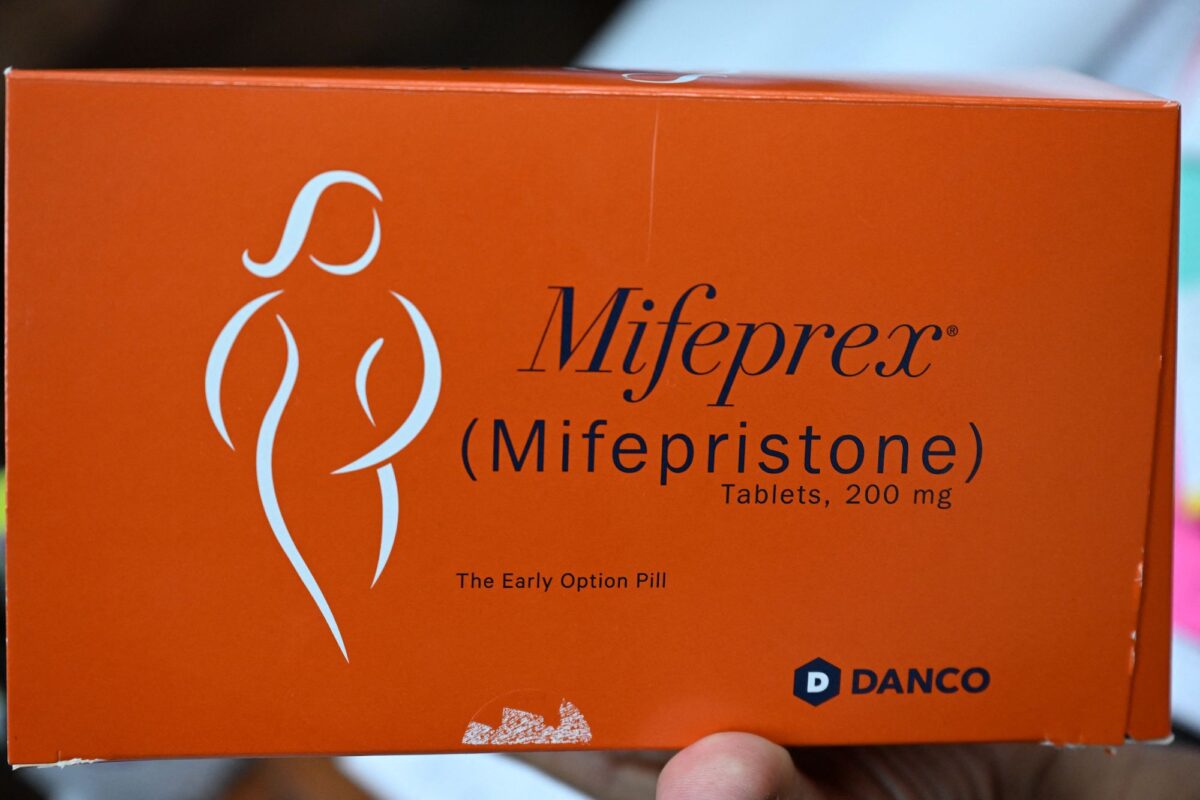


The Biden administration is taking new measures to protect the privacy of abortion seekers after a federal judge halted the U.S. Food and Drug Administration’s (FDA) approval of the abortion drug mifepristone.
The new actions were announced on April 12, ahead of the third meeting of the Task Force on Reproductive Health Access.
“Efforts to protect sensitive health information, including related to reproductive health care, have taken on renewed importance, as states seek to penalize and criminalize health care providers and interfere in deeply personal medical decisions,” the White House said in a statement.
One of the new measures the administration outlined is a proposed Department of Health and Human Services (HHS) rule to prevent the disclosure of an individual’s health information “to investigate, sue, or prosecute an individual, a health care provider, or a loved one” because that person “sought, obtained, provided, or facilitated legal reproductive health care, including an abortion.”
The new rule would require a modification of the Health Insurance Portability and Accountability Act (HIPAA) Privacy Rule, which currently allows the disclosure of protected health information “when a covered entity believes that protected health information is evidence of a crime that occurred on its premises,” and also in cases where a medical emergency did not occur on a health care provider’s premises but the disclosure is deemed necessary to “inform law enforcement about the commission and nature of a crime, the location of the crime or crime victims, and the perpetrator of the crime.”
Another action the administration announced is that the Department of Education will issue guidance to more than 20,000 school officials reminding them of their obligations to protect student privacy under the Family Educational Rights and Privacy Act.
Additionally, the Federal Communications Commission (FCC) will launch a new consumer guide for protecting personal data—including geolocation data—on cell phones, and HHS will issue guidance to health providers on safeguarding patients’ electronic health information.
The administration’s new focus on patient privacy comes on the heels of U.S. District Judge Matthew Kacsmaryk’s April 7 injunction staying the FDA’s approval of mifepristone while a lawsuit challenging the drug’s safety and approval continues.
The FDA approved Mifeprex—the name-brand version of mifepristone—in 2000, but in his order, Kacsmaryk noted that the agency had “stonewalled” judicial review of that approval for decades.
“Before Plaintiffs filed this case, FDA ignored their petitions for over 16 years, even though the law requires an agency response within ‘180 days of receipt of the petition,’” he wrote. “But FDA waited 4,971 days to adjudicate Plaintiffs’ first petition and 994 days to adjudicate the second. Had FDA responded to Plaintiffs’ petitions within the 360 total days allotted, this case would have been in federal court decades earlier. Instead, FDA postponed and procrastinated for nearly 6,000 days.”
Ultimately, the judge, a Trump appointee, held that the plaintiffs in the case had a “substantial likelihood” of proving that the drug should never have been approved.
But while Kacsmaryk’s nationwide injunction is set to take effect on April 14, due to a subsequent ruling in a separate case from Obama-appointed U.S. District Judge Thomas O. Rice, 16 Democrat-led states and the District of Columbia may not be affected.
In his April 7 ruling, Rice ordered the FDA to maintain the status quo, prohibiting the agency from making any changes that would restrict access to mifepristone in those states.
That conflicting ruling came only 20 minutes after Kacsmaryk’s, prompting the Department of Justice to seek clarification from Rice on Monday as to whether his order precluded Kacsmaryk’s in those states.
In the meantime, the Justice Department has also appealed Kacsmaryk’s ruling to the 5th U.S. Circuit Court of Appeals, arguing, “If allowed to take effect, the court’s order would thwart FDA’s scientific judgment and severely harm women, particularly those for whom mifepristone is a medical or practical necessity.”
Mimi Nguyen Ly and the Associated Press contributed to this report.
